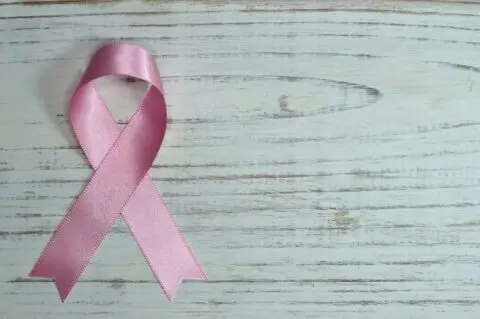Breast cancer is highly treatable if detected early, so women must follow simple steps each month to check for unusual breast tissue. Regular self-exams can help catch breast cancer in its early stages, making treatment more effective. Here’s a step-by-step guide on performing a breast self-exam.
How Do I Do a Breast Self-Exam?
- Choose the Right Time: Examine your breasts after your menstrual period or on a regular day each month if you are postmenopausal. Familiarity with your breasts’ normal appearance and feel is key.
- Visual Inspection: Stand in front of a mirror with your hands on your hips to tense your muscles. Lean forward and look for any dimpling (skin resembling an orange peel), lumps, spots, or painful areas. Some women find that doing this in soapy water can make differences more visible.
- Physical Examination: Lie down and use the opposite hand to feel each breast. Gently squeeze each nipple to check for any discharge or blood. Use the tips of three fingers to move around the breast in a circular motion, feeling for lumps, sensitive spots, or unusual warmth. Be sure to examine the entire breast, including the underarm area.
- Report Findings: If you notice anything unusual, immediately report it to your physician.
How Often Should I Get a Clinical Breast Exam?
Many family doctors and gynecologists recommend manual examinations every 1 to 2 years during routine check-ups or pap smears.
What Happens During a Mammogram?
Physicians often recommend mammograms for women aged 40 and over every 1 to 2 years until at least the age of 75. Mammograms are performed at imaging centers, similar to X-rays. During the procedure, your breast is placed between two pieces of plastic and slightly squeezed to take an internal picture.
Although there might be some short-lived discomfort, you can help minimize it by avoiding caffeine that morning and not using deodorants or skin creams, which can blur the image.
Breast Cancer Early Detection: The Bottom Line
Prevention is key. Perform self-exams and visit your doctor regularly for check-ups. Early detection can make a significant difference in treatment outcomes. Do it for yourself and your loved ones.
Get Expert Breast Cancer Detection Tips With QuickMD
QuickMD offers remote consultations to help you manage your health. Our telemedicine services ensure you get the care you need from the comfort of your home. Contact QuickMD today to speak with a provider about your breast health and routine check-ups.




